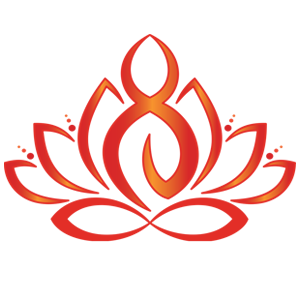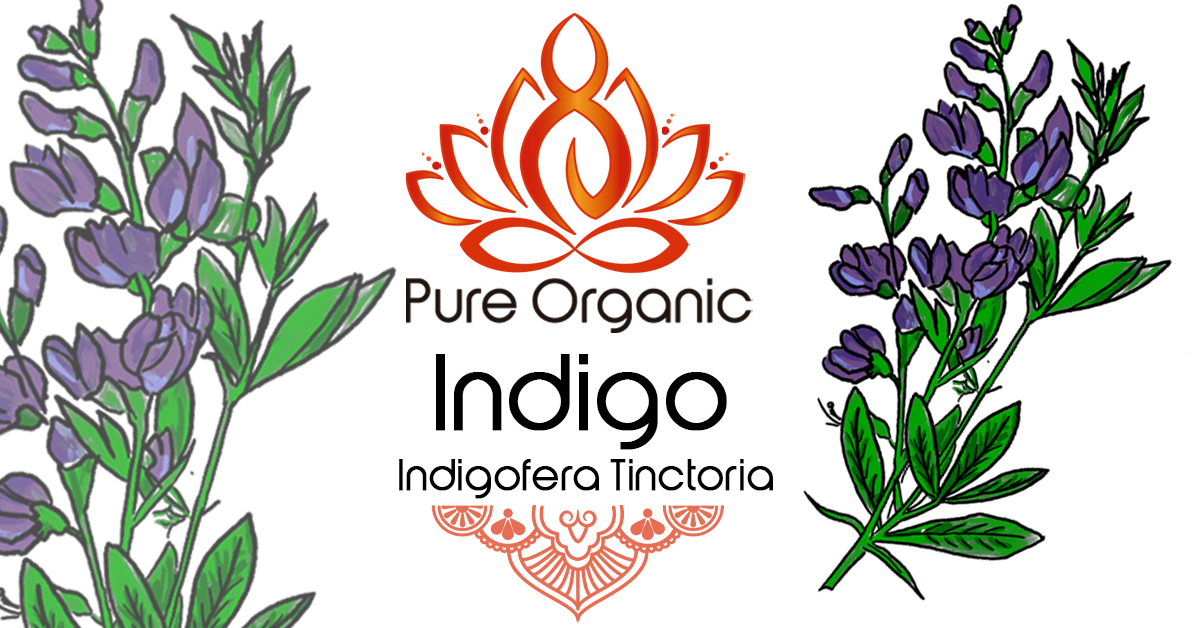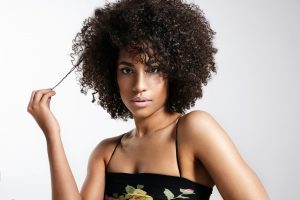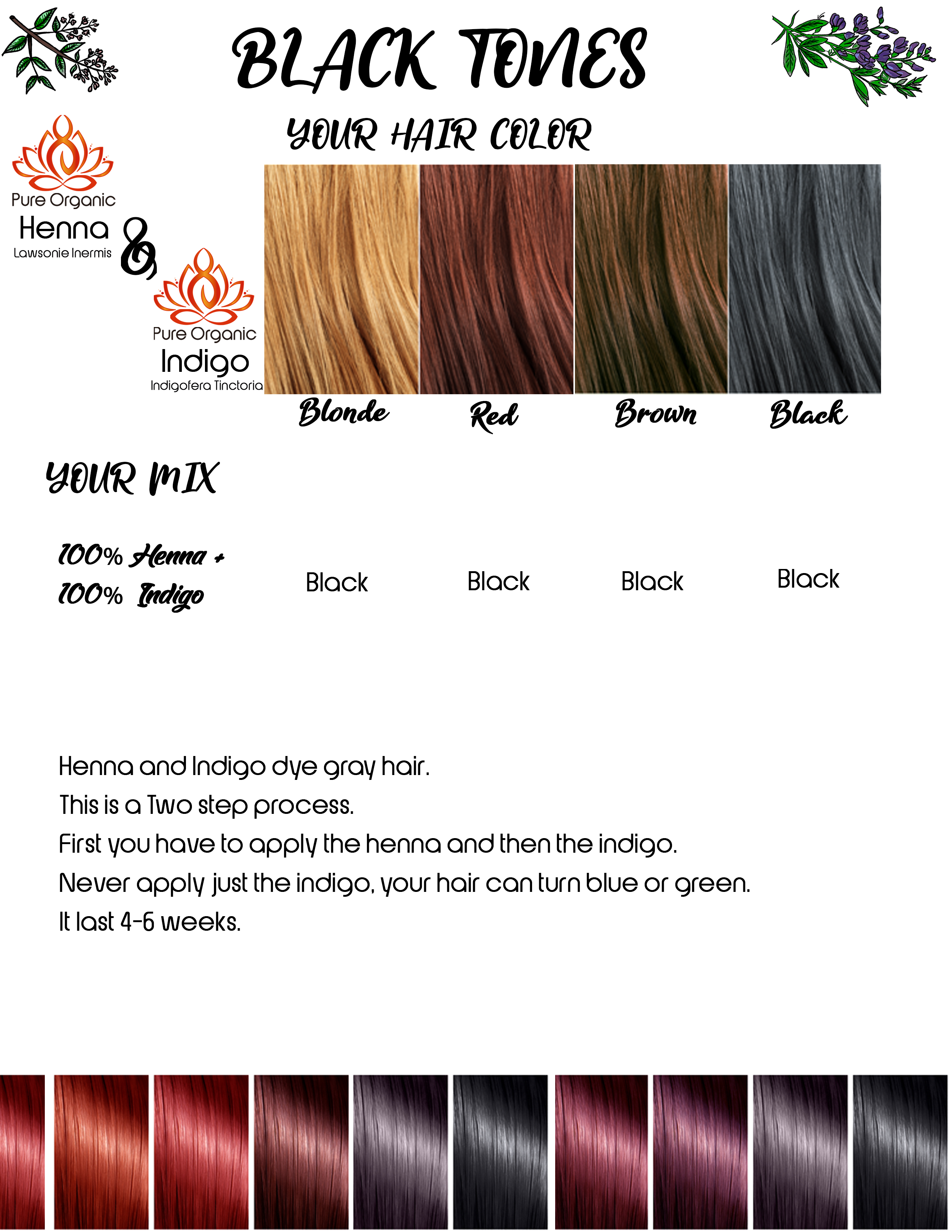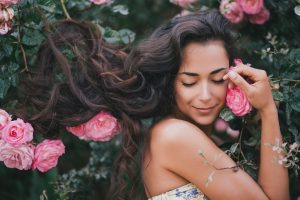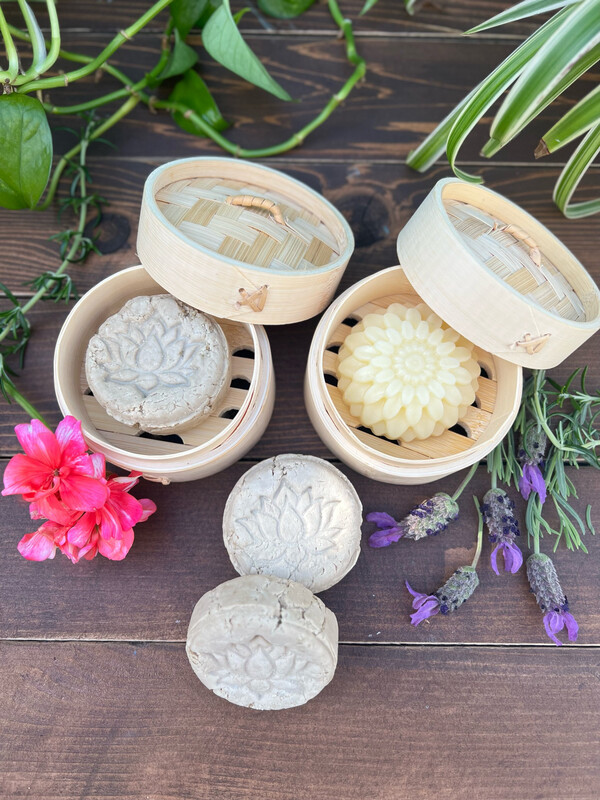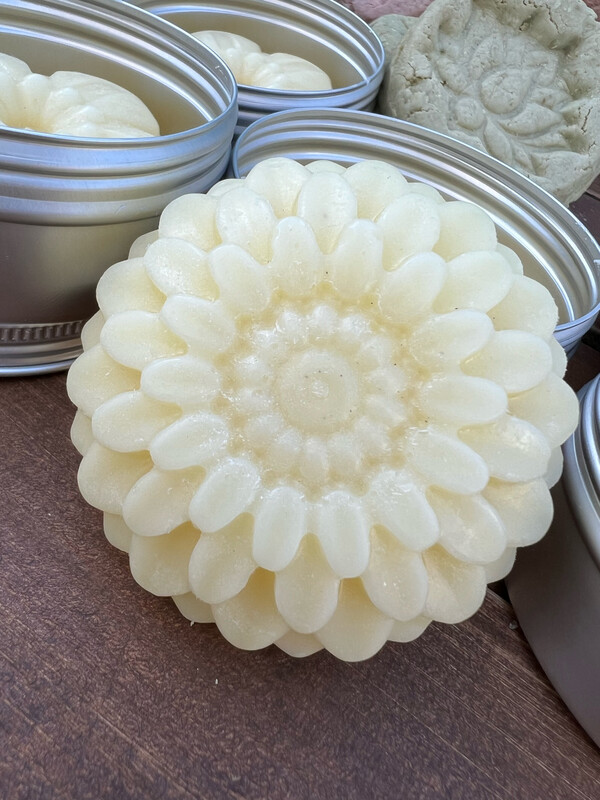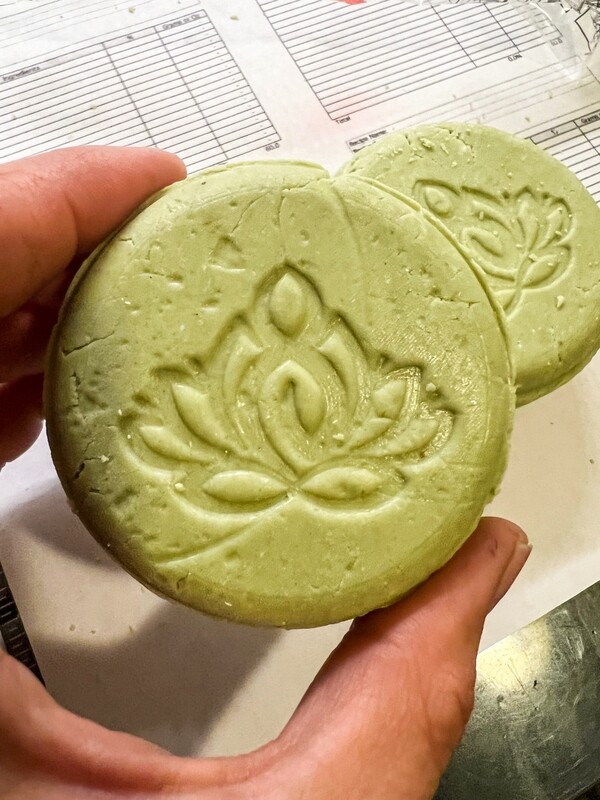What Are The Benefits of Indigo Powder For Hair?
-
It treats and prevents premature greying.
-
It can lead to new hair growth and treat baldness.
-
It treats dandruff and conditions dry hair.
-
It prevents scalp infections and soothes the scalp.
-
It smoothens the tangles, makes your hair thicker, more manageable and lustrous.
Indigo Powder for Hair is a natural plant. The powdered leaves have a natural dark blue dye. Indigo is used along with henna to dye darker hair tones.
What color tones will you achieve?
- reddish brown when using proportions of 75% henna and 25% indigo. This method is called a one step process.
- brown tones when using proportions of 50% indigo and 50% henna. This method is called a one step process.
- dark chocolate brown tones when using proportions of 75% indigo and 25% henna. This method is called a one step process.
- Black Tones when you use henna first at 100%, and then second step of indigo at 100%. This method is called a two step process.
- Apply indigo with your henna application to get browner tones. This method is called a one step process.
Dye release for indigo is 15-20 minutes. Please mix with warm to hot water only. A bit of salt added to the indigo will help it adhere better to your hair strands, if needed.
Using indigo for brown to black tones 60/40 ratio of henna to indigo, with the henna mixed with very strong, cool black tea. Then after that she did two very strong glosses of mostly henna with a little bit of indigo.
Recommended Liquids:
-
Water only
Indigo powder must always be used with henna. Without henna indigo will give your hair a green, blue, no good.
How to mix Indigo for black tones (2 step process):
You must henna your hair before using indigo in order to create black tones.
Please make sure to do indigo within 72 hours of henna application. Indigo does not always work the first time for clients and repeated application(s) may be necessary.
- Follow the instructions on how to henna your hair first (please view instructions for your henna powder click here)
- Mix indigo with enough warm to hot water. Add enough water to make the paste the consistency of pancake batter. Optional, add salt (1 tbsp per 50 grams of indigo) to help the indigo stick to resistant hair strands. Allow dye to release for 15-20 minutes.
- Apply the indigo paste to your hair in sections starting from the front and moving towards the
- back. Make sure to wear gloves when applying indigo as it will stain your hands or brush.
- Wrap your hair and allow indigo to stay in your hair 3-4 hours.
- Gently wash or co-wash the paste out so as not pull any of the color out.
Your hair’s color will settle over the next 2 days.
Get The Color You Desire!
-
Reddish brown tones can be achieved with 70% henna and 30% organic indigo
-
Brown tones are achieved can be 50% organic indigo and 50% henna
-
Dark chocolate brown tones can be achieved with 70% indigo and 30% henna
-
Black tones can be achieved when you use 100% henna first and then a second step of 100% indigo
Mixing Indigo for brown hair (1 step process):
Organic indigo is used for reddish brown to medium brown tones.
Indigo for Hair is best for grey coverage and brown to black tones.
- Prepare the henna paste as directed (please view instructions for your henna powder click here)
- Once henna is ready, mix your indigo as directed above in separate bowl.
- Mix the henna and indigo together.
- Apply the paste to your hair in sections starting from the front and moving towards the back. Make sure to wear gloves as it will stain your hands.
- Wrap your hair and allow mixture to stay in your hair for 3-4 hours.
- Rinse, shampoo, or co-wash the paste out, according to what works best for your hair.
Your hair’s color will settle over the next 2 days
Tips:
- The paste is drying? Add our Organic Aloe Vera powder to your henna and indigo recipe for added moisture. You’ll only need about 1 tsp per 100 grams used
- Add salt to your indigo to help it cling better to the hair strand
Storage:
- Indigo paste must be thrown out after use, even when mixed with henna.
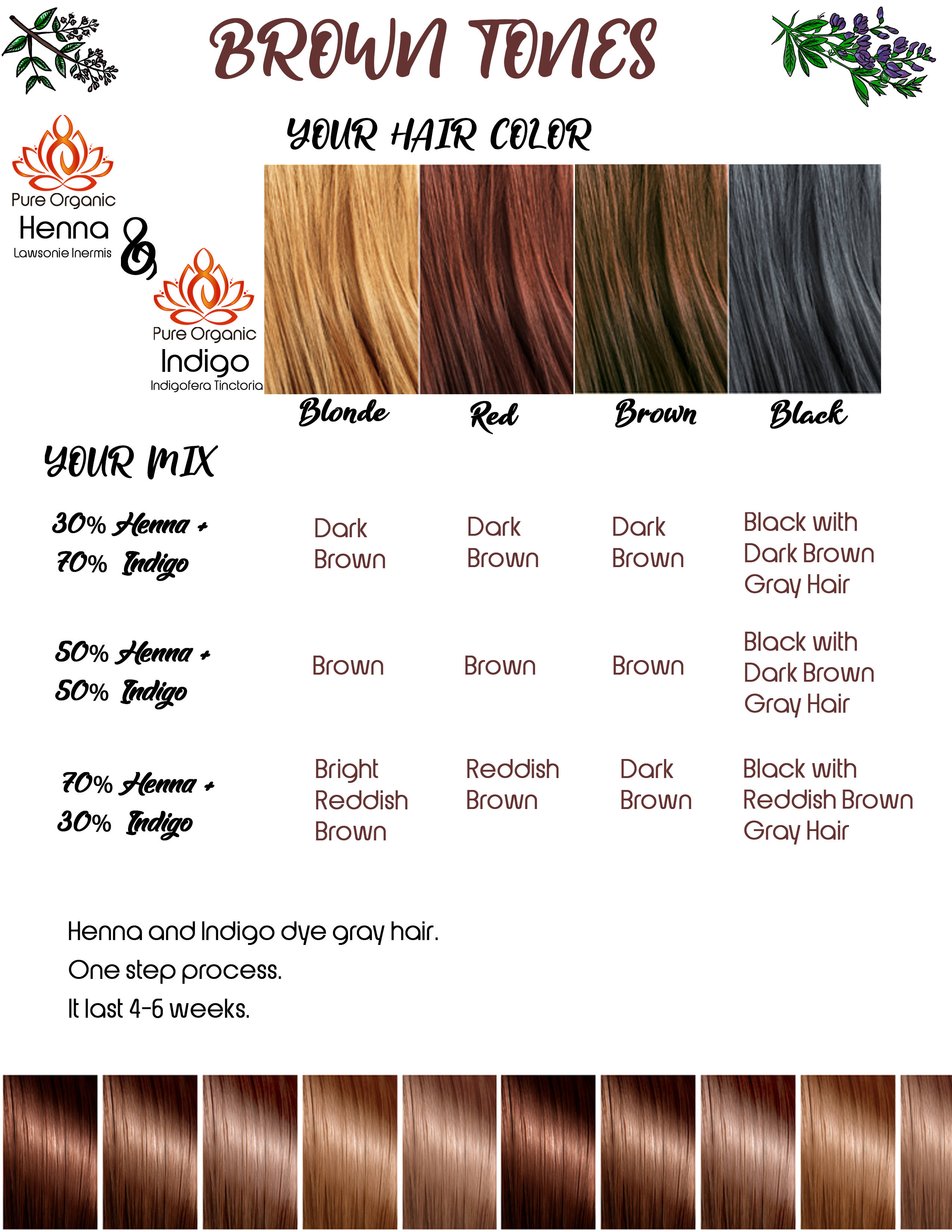
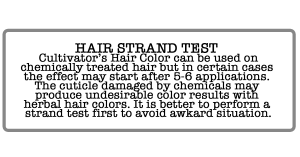
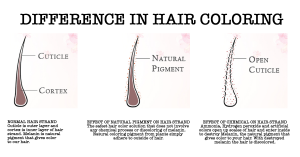
COMMON NAME: Indigo
OTHER NAME: Nili, Indian Indigo.
BOTANICAL NAME: Indigofera tinctoria Linn.
PLANT FAMILY: Fabaceae
PART USED: Dried Leaf Powder
OVERVIEW: People have used indigo alone or in combination with henna to dye their hair black since thousands of years.
PHYTOCONSTITUENTS: Indigotin. Indigofera tinctoria plants contain the glucosides indicant. After soaking the plants in water, enzymic hydrolysis transforms indicant into indoxyl and glucose. Indigotin (often also called indigo or indigo-blue) formation results from the grouping of two molecules of indoxyl in the presence of oxygen.
PRECAUTIONS: None known.
For educational purposes only. This information has not been evaluated by the Food and Drug Administration. This information is not intended to diagnose, treat, cure, or prevent any disease.
Pure Organic Ayurvedic Shampoo Bar and Conditioner Bar
Zero Waste Vegan Pure Organic Ayurvedic Shampoo and Conditioner bars
Reduce waste with this Ayurvedic shampoo bar and conditioner bar, you can get one or the combo! This concentrated solid bars are going to last longer that all the bottles you are using at the moment. We use as many recyclable and compostable materials so this product is ecological.
Bars are handmade cold press the shampoo bars and the best quality butters on the conditioner bars. They are made according to your needs. Dry? Curly? Oily? Dandruff? We use the most of our Pure Organic Ayurvedic Herbs selection from our store. The results are just amazing you will feel the diference.
- Cruelty Free
- Organic
- Vegan
- Non GMO
- No Parabens
Perfect for traveling, camping, the gym, etc. they will not spill in your bag.
⭐️⭐️⭐️⭐️⭐️
@cyblancarte "They are wonderful, my hair is shiny and is healthy, my scalp is hydrated, i recommend this products."
